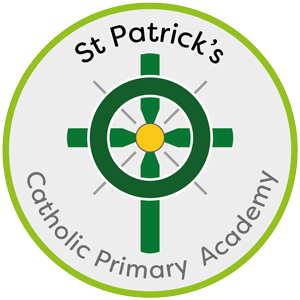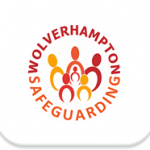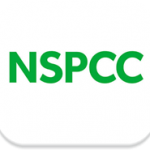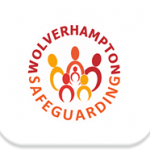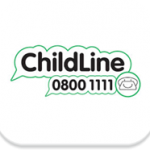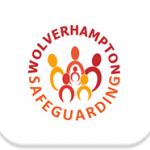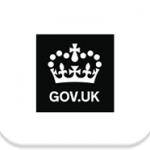Definition of Safeguarding
“Safeguarding and promoting the welfare of children is defined for the purposes of this guidance as: protecting children from maltreatment; preventing impairment of children’s mental and physical health or development; ensuring that children grow up in circumstances consistent with the provision of safe and effective care; and taking action to enable all children to have the best outcomes.“ KCSIE
Safeguarding children and young people is central to everything we do at St. Patrick’s Catholic Primary Academy
This section of the school’s website gives an overview of the policies, partnerships, programmes and mechanisms that are in place to safeguard the children and young people who attend St. Patrick’s.
At St. Patrick’s, we fully recognise our responsibility for safeguarding children and young people. It is difficult to accept, but every child can be hurt, put at risk of harm or abused, regardless of their age, gender, religion or ethnicity. That is why we do everything within our power to:
- protect children from maltreatment.
- prevent impairment of children’s health or development.
- ensure that children grow up in circumstances consistent with the provision of safe and effective care.
- take action to enable all children and young people to secure the best outcomes.
The action we take to promote the welfare of children and protect them from harm is everyone’s responsibility. Everyone who comes into contact with children and families has a role to play and we recognise, and take our part very seriously in, this. We ensure that we operate a child-centred safeguarding system. We recognise that children want to be respected; have their views heard; to have stable relationships with their teachers, built on trust; and to have consistent support for their individual needs.
We recognise that we have a duty to ensure arrangements are in place for safeguarding and promoting the welfare of children and we will carry out this duty through our teaching and learning, pastoral care and extended academy activities. All members of the academy community (including volunteers and governors) will at all times establish and maintain a safe and stimulating environment where children feel secure, are encouraged to talk to adults they can trust and are listened to. Through training, all staff (teaching and non-teaching) will be able to recognise the signs of abuse and understand their responsibilities when a child may be at risk of harm. Training of all staff will be updated annually. The academy will ensure that it provides written referrals on the correct form (MARF) and recognises the importance of attendance at all meetings called when there is a concern regarding the safeguarding of one of our children.
Safeguarding Contacts in School
Designated Safeguarding Leader – Mrs S Mulrooney
Deputy DSLs – Mrs P Ryan & Mrs A Williams & Mrs A Connor
Safeguarding Governor – Miss K Fenlon
Inclusion and Welfare Officer – Miss T Joyce
eSafety – Mrs B Nicholls
Our designated members of staff are fully trained and receive updated training every 2 years.
The Designated Safeguarding Lead ensures all confidential records are kept securely. It is the responsibility of the designated member of staff to have discussions with Social Care when concerns arise regarding the safety of a student in this college. All such students are closely monitored, including attendance, and where extra concerns arise these are always passed on to the appropriate agencies. The Designated Lead ensures that all staff are trained with regard to Safeguarding and Child Protection.
The governor will review safeguarding procedures/practices including access to training through fortnightly meetings with the Designated Lead. The governors will ensure that sufficient time is given to carry out the duties including accessing training. Where safeguarding concerns arise regarding a member of staff, the governor will liaise with the Chair of Governors.
Children with Statements of Special Educational Needs
We recognise that statistically children with behavioural difficulties and disabilities are most vulnerable to abuse. All staff who support these students will be extra aware of the need for vigilance for signs of abuse.
Communication with Parents
Our school will always discuss concerns with parents/carers and consent for any referrals should be sought unless to do so would:
- Place the child at risk of significant harm or further risk of significant harm.
- Place a vulnerable adult at risk of harm.
- Compromise any enquiries that need to be undertaken by children’s social care or the police.
The school will endeavour to ensure that parents have an understanding of the responsibilities placed on the school and staff for safeguarding children.
In the best interests of safeguarding children there may be occasions when the school has to consult with other agencies without a parent or carer’s prior knowledge. Our first concern and responsibility is the child’s welfare and we have a duty to protect children first and always. Such consultation may result in a formal referral which could prompt visits from social care and/or the police. We fully understand that this can be a very distressing set of circumstances. Our school will follow the procedures required by Wolverhampton Safeguarding Together.
Staff Recruitment
In line with the guidance ‘Safer Recruitment’, the Principal, Assistant Principals and some Governors have completed Safer Recruitment training. All staff including volunteers have been carefully selected and screened and all have had an enhanced DBS check prior to commencing work. Details of all checks are held in a central record. Staff will be inducted into the academy and training will be given with regard to child protection.
Child Sexual Exploitation
Child Sexual Exploitation (CSE) is a form of sexual abuse which sees children/young people being manipulated or coerced into sexual activity for receiving ‘something’ such as; gifts, money, food, attention, somewhere to stay etc. Technology is very often used to groom victims. This may occur through social networking sites and mobile phones with internet access. CSE has gained a large amount of media attention over the last year as lots of services involved with children and young people have noticed a big rise in cases involving CSE.
Charities such as NSPCC and Barnardos have been campaigning to raise the profile of this form of child abuse.
Internet Safety
Children and young people spend lots of time on the internet. They may go online to research information for homework or to play games, chat with friends and make new ones. The internet holds a massive amount of useful information and can also be a really good way of learning about new things and keeping in contact with friends and family. It can also be a very dangerous place so it is important that children are protected and monitored when they are online.
CEOP (Child Exploitation and Online Protection) has lots of information about how to keep your children safe online and parental controls. The link to the website is below.
CEOP – ThinkUKnow
Female Genital Mutilation (FGM)
In April 2014 every school in England received new safeguarding guidelines and detailed information on identifying and responding to Female Genital Mutilation. FGM is a procedure carried out on young girls between the ages of infancy and 15 years of age.
Female Genital Mutilation is classified as a form of Child Abuse in the UK. It therefore makes the procedure of it a serious Child Protection issue. It is illegal for anyone to perform FGM in the UK or to arrange for a child to be transported to another country for the procedure. The maximum sentence for carrying out FGM or helping it to take place is 14 years in prison.
There is lots of information and support available online for parents/carers concerned about this subject or if you know someone who is at risk:
- Contact the Police if you think that a girl or young woman is in danger of FGM and is still in the UK.
- Contact the Foreign and Commonwealth Office (020 7008 1500) if she’s already been taken abroad.
The NSPCC has detailed advice on how to spot the signs, symptoms and effects of FGM and provides support for people who are concerned about a child or who have been affected themselves. The link to the website is below.
Reporting a Concern of Abuse or Neglect
If you have concerns that a child you know is at risk of serious harm through Abuse or Neglect it is important that you report your worries to the correct agency.
-
The link below will direct you to the City of Wolverhampton Council’s Social Service page, which tells you how to report a concern.
-
Below is the link to the Wolverhampton Safeguarding Together. Wolverhampton Safeguarding Together (WST) is a statutory board which has been set up as part of the Every Child Matters government reforms. WST ensures that all organisations that work with children work together to keep children and young people safe from harm. WST undertakes this role through providing training, the development of policies and procedures and awareness raising.
Wolverhampton Safeguarding Together
Please click here to go to our Policies page where you can view our Safeguarding Policy.
Prevent Duty
At St Patrick’s, we build pupils’ resilience to radicalisation by promoting the Fundamental British Values and empowering our staff and pupils to challenge extremist views. You can read about what we do to promote these British Values, by following the links below:
British Values at St Patrick’s
Resources
Please view our Safeguarding documents and useful links below:
- Darker Nights Safety Advice.pdf pdf368.9 KbJun 29th, 2020
- eSafety Conversation Starters.pdf pdf741.3 KbJun 29th, 2020
- eSafety Flowchart.pdf pdf126.7 KbJun 29th, 2020
- eSafety Tips.pdf pdf199.2 KbJun 29th, 2020
- Healthy Relationships.pdf pdf139.1 KbJun 29th, 2020
- Hoax Calls.pdf pdf122.2 KbJun 29th, 2020
- Immobilise Property Crime.pdf pdf251.2 KbJun 29th, 2020
- Keeping Children Safe in Education.pdf pdf1.8 MbSep 22nd, 2022
- Keeping Safe.pdf pdf6.4 MbJun 29th, 2020
- Keeping Your Child Safe Online Checklist.pdf pdf204.6 KbJun 29th, 2020
- Keeping Yourself Safe.pdf pdf232.6 KbJun 29th, 2020
- Live Streaming Factsheet.pdf pdf299.0 KbJun 29th, 2020
- Love Your Phone.pdf pdf264.5 KbJun 29th, 2020
- Safeguarding Visitor Leaflet.pdf pdf472.9 KbOct 1st, 2020
- Sexting Advice.pdf pdf197.6 KbJun 29th, 2020
- Sexting Policy Guidance.pdf pdf666.3 KbJun 29th, 2020
- Sharing Information Advice.pdf pdf333.9 KbJun 29th, 2020
- Silent Solutions.pdf pdf358.1 KbJun 29th, 2020
- Snapchat Maps.pdf pdf73.6 KbJun 29th, 2020
- Working Together to Safeguard Children.pdf pdf2.2 MbJun 29th, 2020
- WST Wolverhampton Safeguarding Together.pdf pdf2.5 MbJun 29th, 2020
- Wolverhampton’s website for Safeguarding. On this site you will be able to find the form for Safeguarding Referrals.
- National website for keeping children safe.
- Information on child exploitation.
- General information about child abuse.
- Information on Female Genital Mutilation (FGM).
- Help website for FGM.
- Information on Government publications.
- Information on preventing radicalisation.
